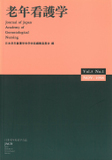Japanese
English
- 販売していません
- Abstract 文献概要
- 参考文献 Reference
子供の近くに転入し,現在,公的サービスを受けているいわゆる「呼び寄せ老人」とその介護者98組に面接し,生活実態調査を行うとともに,介護者の呼び寄せに対する認識に影響する要因を分析した.その結果「呼び寄せ老人」は近県移動が主であり,痴呆が中等以上になってからの移動が多く,移動能力もつかまり歩行以下になってからの移動が多かった.
呼び寄せに対する介護者の認識,すなわち呼び寄せて良かったか否かという認識に影響する要因を推測するために,数量化Ⅱ類の分析を行った.その結果,「良かった」とする因子は,呼び寄せ前準備期間が3ヶ月以上あり,人間関係がよく,呼び寄せ前の移動能力に介助が必要で,痴呆症状よりも寝たきりへの介助が必要な人であった.
今回の結果から,呼び寄せ老人への直接的支援よりも,介護者への支援が優先されるべきであることが示唆された.
We interviewed 98 relocated elderly persons who receive public service about their living situation, and analyzed factors that might influence caregivers' evaluation about relocation of the aged. The results showed that most of the relocated aged had moved from adjacent prefectures after their mental status had deteriorated to moderate or worst and movement ability had been under walking ability while holding something.
To identify factors that might influence caregivers' evaluation about relocation, namely whether good or bad, quantification method of the second type analysis was conducted. The factors which led to a "good" evaluation were a preparation period of three months or longer, good human relationships, necessity of helping them move before relocation and to help bedridden persons rather than those with dementia symptoms.
These results indicated that assistance for caregiving should be given priority, rather than direct assistance for the relocated aged.
Copyright © 1998, Japan Academy of Gerontological Nursing All rights reserved.


